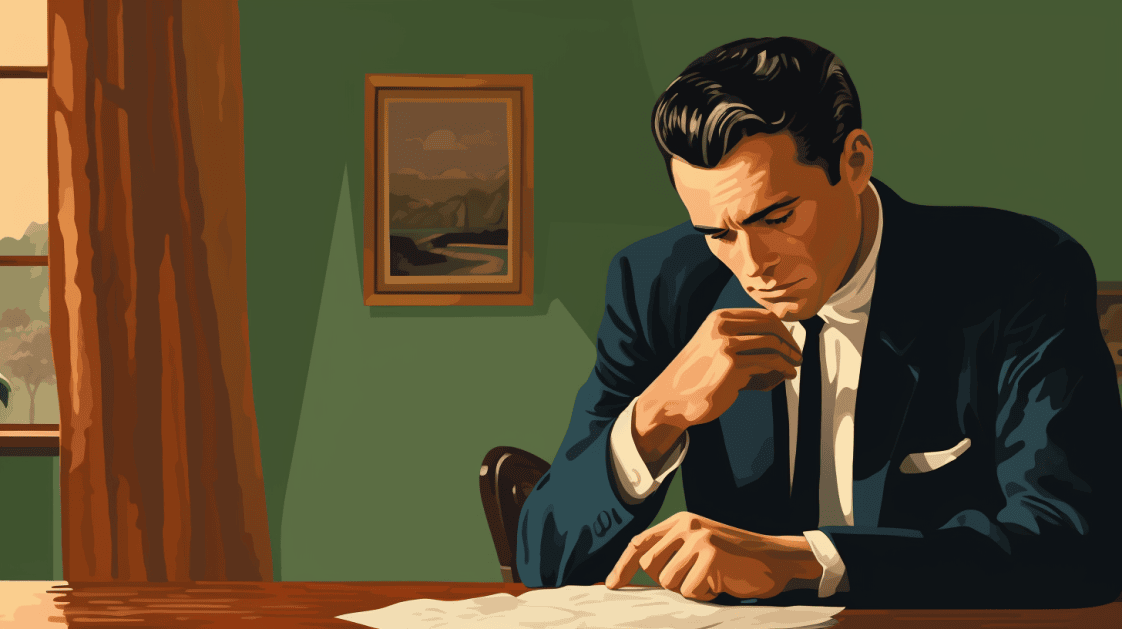
How to Write a Rejection Letter After an Interview
Delivering the news of rejection is never easy, even in a professional setting. However, it’s an essential part of the hiring process.
In this article, we'll discuss the purpose behind these letters, why they matter, and even provide you with a few examples of rejection letters that strike the right balance between professionalism and empathy that will create a positive experience for both the candidate and your company.
So, whether you are seeking guidance on writing an interview rejection email or are interested in enhancing your rejection letter after an interview, this article is here to help you navigate the difficulties of these challenging yet crucial communication pieces.
What is a rejection letter?
A rejection letter is a formal communication sent by an employer or agency either by letter or email to inform a job applicant that they haven’t been selected for the position they interviewed for. It typically includes a polite and well-crafted message expressing appreciation for the candidate's time and interest in the company while also informing them that they weren’t successful. The letter may also provide some general feedback or encouragement for the applicant to keep searching for other opportunities.
Why is a rejection letter after an interview important?
Now, you might be wondering, "Why bother with a rejection letter at all?" and if so, you’re not alone. A lot of companies don’t send out anything, or at least not straight away.
The truth is a well-crafted rejection email, or rejection letter can leave a lasting impression on the candidate, even in the face of disappointment. It demonstrates your professionalism and respect for their time and effort and ultimately helps to maintain a positive reputation for your company in the job market.
Here are some other benefits of sending a prompt rejection letter after the interview:
1. Build and maintain solid relationships
Rejection letters provide an opportunity to build relationships with candidates even if they weren’t selected. By sending a personalized and thoughtful rejection letter, you leave a positive impression, and candidates may consider future opportunities within your company or even refer others to apply.
2. Reflect fairness and transparency
A rejection letter demonstrates a fair and transparent selection process. It reassures candidates that their application was carefully reviewed and considered and that they weren’t selected based on arbitrary or biased reasons.
3. Provide feedback and growth
Rejection letters can offer constructive feedback, helping candidates understand why they weren’t selected and providing insights for improvement. This feedback can be valuable for candidates to enhance their skills, qualifications, or interview performance in future job applications.
4. Uphold legal compliance
In some countries, sending rejection letters is a legal requirement to ensure compliance with employment laws. It helps to demonstrate that the selection process was fair, non-discriminatory, and based on valid reasons.
The importance of a prompt rejection letter
Don’t hold off sending a rejection letter for too long. Providing timely and considerate feedback to candidates, even if it’s a rejection, helps to establish a positive reputation for your company. It shows professionalism, respect, and empathy towards applicants. This can greatly impact how people perceive and talk about your company, enhancing your employer brand.
A delay could mean a candidate could perceive your company as faceless, apathetic, or discourteous, which could, in turn, harm your EVP or reputation.
RELATED: Employer value proposition
How to write a rejection letter
Writing a rejection letter requires a delicate balance of empathy, clarity, and sincerity. We understand that writing rejection letters can be challenging. It's essential to convey appreciation for the candidate's effort while concisely delivering the unfortunate news.
So, here are some key points to make drafting a rejection letter easier:
1. Express appreciation
Start by expressing gratitude for their interest, effort, or application. Acknowledge the time and energy they invested.
2. State the decision
Clearly and directly communicate the decision of rejection. Be honest but considerate while explaining why their request or application was not accepted.
3. Offer a reason (optional)
Depending on the situation, you may choose to provide a brief explanation for the decision. However, avoid going into excessive detail or being overly critical.
4. Be empathetic and understanding
Remember, rejection is hard for anyone. Show empathy and compassion by acknowledging their efforts, skills, or qualifications.
5. Provide constructive feedback (optional)
If appropriate, offer constructive feedback that can help the recipient improve for future applications or requests. This feedback should be genuine, specific, and helpful.
6. Encourage them
Conclude the letter positively by encouraging the recipient to continue pursuing their goals or applying in the future. Wish them luck and success, or offer any relevant advice.
Remember, maintaining professionalism and kindness while being clear and concise is important to leave a good impression.
Sample rejection letter
Here are two examples of rejection letters that strike the right tone and ensure a respectful and positive experience.
Sample 1 - when the candidate is unsuccessful after the first interview
Sample 2 - when the candidate is unsuccessful after progressing past the first interview
Remember, rejection doesn't have to be a negative experience for anyone involved. By crafting a well-structured and thoughtful rejection letter, you can leave a positive impression on candidates, even if they aren't the right fit for the particular role.


